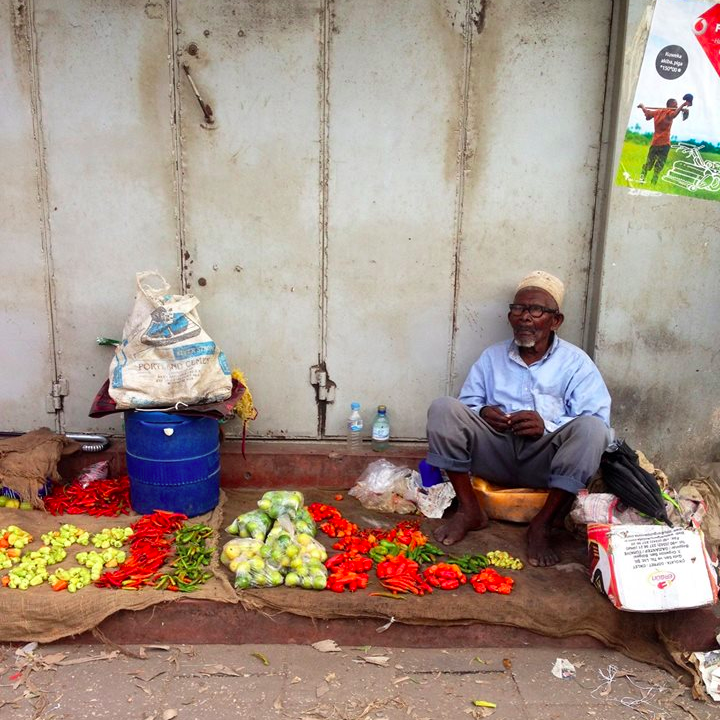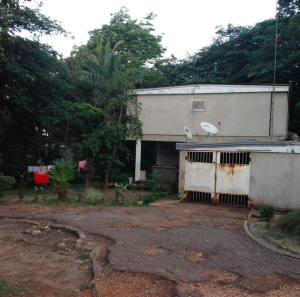
“Dar es Salaam is a big, dirty city,” was one of the phrases used to describe where I was about to spend the next six weeks of my summer. I shrugged off the comment, thinking that description could fit many cities, and kept on with the preparations — buying a mosquito net, 60 percent Deet Mosquito repellent (which actually melts plastic) and my Swahili dictionary. Although I had all the physical necessities, on my 20-hour trip to Dar, I realized I had no idea what to expect.
As a culture and politics major with a theme of women’s economic development in sub-Saharan Africa, it was very much a logical decision to spend half of my summer in Tanzania. If I wanted to study development, I first needed to see it, experience it and, most importantly, make sure I could handle living in a developing country. I knew that I not only wanted to go but also needed to go.
As soon as I disembarked the plane at Dar airport, we started sweating from the hot, sticky, humid air that was following the end of the rainy season. As I tried to find my bags alongside my good friend who also decided to go on the program, we quickly realized that there was little to no organization or structure. In a small, open-aired international terminal, we sifted through bags on and off the carousel, finding many of our bags buried under an impressively large pile.
Representatives from the Council on International Educational Exchange program met us at the airport and took us to our Georgetown professor on the University of Dar es Salaam campus. As we travelled on one of the two major roads that run through the city, my mix of travelling exhaustion struck me, and during our car ride, I felt as though I was surrounded by pure chaos. There seemed to be no traffic laws, no lights, constant beeping, people darting across the street, pikipikis (motorcycles) swerving between cars, bjajis (3-wheeled rickshaw carts) driving next to 18-wheelers, pop-up markets scattered in seemingly random clusters along the road.
My first impression of the city was overwhelming, and I quickly wondered how I was going to live in this city with 11 other Georgetown students for six weeks.

The house where Fenton stayed with her host family.
While traffic never got any less terrifying, I learned to accept it and adapt, as I did to most of my new surroundings and routines. As a group, we spent four hours together Monday through Friday in Swahili class. Then, we would eat lunch at a small restaurant on campus — usually eating chipimayai (basically French fries covered in egg and then cooked), walinamaharage (rice and beans), cuckoo (chicken) or samaki (fish). Then, the 12 of us piled into two different vans with our drivers — Julius and Alberto — and travelled to our various internships throughout the city, often leaving at 12:30 p.m. and arriving at our internships around 2 p.m. because of the traffic.
With limited access to Internet and electricity, we also had to learn how to fill our free time productively and safely. Availability of running water was temperamental, and hot water was never on-hand. Once, while I was bathing with a bucket, the power went out.
Another time, a friend and I watched reruns of “The Office” that he had pre-downloaded until his computer ran out of battery, and then we sat in the 90-degree room eating strangely flavored Lay’s chips and making origami.
Starting at dusk, it was dangerous to walk along the main road, as there was a bridge where, according to Baba, my host father, “boys smoke marijuana and will rob you with machetes.”
It was very easy to get caught up in the huge lifestyle differences of life in Dar because clearly they were hard to ignore. However, it’s difficult to verbalize the feeling I got when I finally felt comfortable travelling around Dar, communicating in broken Swahili and getting used to being called mzungu, which means “white person” and really has no connotation other than “foreigner.”
As our trip started to come to a close, I found myself wanting to stay longer. The 12 of us developed a unique and special support system that was unlike anything I had ever experienced. In order to help each other adjust, laugh at our cultural blunders, travel safely and most of all enjoy our time in Dar, the 12 of us, our Georgetown professors, our Tanzanian professors and our host families all created a network as students and travellers with a genuine interest in both the culture and the development of the city, country and region.
There are inevitable challenges with any study abroad experience — just like when you first arrive on campus as a nervous, eager freshman, you are forced to adjust to the independent life away from the familiar comforts. When cultural differences are even starker, those challenges may seem even more difficult. But that sense of accomplishment that came from establishing a new kind of familiarity feels incredible and incomparable.


















